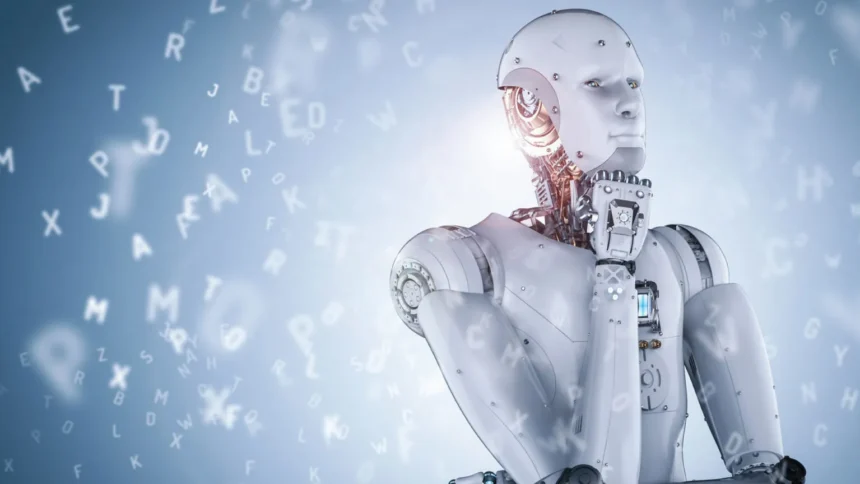Isn’t “justice” a word that echoes through history, legislation, and our daily conversations? When we think of another word for justice, many terms may spring to mind: fairness, equity, righteousness, impartiality. But are they truly interchangeable? Exploring these alternatives reveals the complex tapestry of meaning woven into our pursuit of a just society. This exploration will illuminate the nuances and contexts where one term might resonate more powerfully than another.
The Allure of Synonyms: More Than Just Semantics
The quest to find another word for justice isn’t just about playing with language; it’s about deepening our understanding of what justice truly entails. Each alternative brings a slightly different shade of meaning, a unique perspective on the ideal we strive for. In addition, it helps us to have a better understanding of the nuances of different situations and to be able to express ourselves with greater precision.
Fairness: The Cornerstone of Justice
Fairness is probably the most common synonym for justice. It implies an even playing field, equal opportunity, and unbiased treatment. A fair system is one where rules are applied consistently, and outcomes are not predetermined by prejudice or favoritism. Reddit users often bring up the concept of “procedural fairness,” highlighting the importance of transparent processes in ensuring that everyone has a fair chance to be heard and understood. Procedural fairness refers to the fairness of the process, by which decisions are made, rather than the outcome itself.
The Challenge of Subjectivity
However, fairness can be subjective. What one person perceives as fair, another might see as unjust. For example, affirmative action policies, designed to address historical inequalities, are often debated in terms of fairness. Supporters argue that they create a fairer system by leveling the playing field, while critics contend that they are inherently unfair because they give preferential treatment based on race or ethnicity.
Equity: Addressing Unequal Starting Points
Equity, while often used interchangeably with fairness, goes a step further. It recognizes that people start from different places and that equal treatment may not always lead to equitable outcomes. Equity aims to provide tailored support to those who need it most, acknowledging and addressing systemic barriers.
Equity vs. Equality: A Crucial Distinction
Equality, on the other hand, means treating everyone the same. While equality is a noble goal, it can sometimes perpetuate inequalities. For example, providing the same resources to students from disadvantaged backgrounds as to those from privileged backgrounds may not be enough to close the achievement gap. Equity demands that we provide additional support to those who need it to reach their full potential.
Reddit’s Perspective on Equity
Reddit discussions frequently highlight the importance of equity in areas like healthcare, education, and employment. Users share personal experiences of how systemic biases have affected their access to opportunities and advocate for policies that prioritize equity over mere equality. The debate is often heated, with some arguing that equity leads to reverse discrimination, while others maintain that it is the only way to achieve true justice.
Righteousness: Moral and Ethical Dimensions
Righteousness brings a moral and ethical dimension to the concept of justice. It implies adherence to a higher standard of conduct, a commitment to doing what is morally right, regardless of personal consequences. Righteousness is often associated with religious or spiritual beliefs, but it can also be grounded in secular ethical principles.
Righteousness in Action
Examples of righteousness in action might include whistleblowing on corporate wrongdoing or standing up for the rights of marginalized communities. These actions are often driven by a deep sense of moral conviction, a belief that something is fundamentally wrong and needs to be corrected.
Impartiality: Objectivity and Neutrality
Impartiality emphasizes objectivity and neutrality. An impartial judge, for example, is one who is free from bias and prejudice, who makes decisions based solely on the evidence presented in court. Impartiality is essential for ensuring that justice is administered fairly and without favoritism.
The Illusion of Perfect Impartiality
However, achieving perfect impartiality is often difficult, if not impossible. We all have biases, conscious or unconscious, that can influence our perceptions and judgments. The key is to be aware of these biases and to take steps to mitigate their impact. This might involve seeking out diverse perspectives, engaging in self-reflection, and implementing safeguards to prevent bias from influencing decision-making.
Another Word For Justice: The Quest for True Equity
The term “equity” has increasingly gained prominence as another word for justice, particularly in discussions about social justice. Equity acknowledges that systemic inequalities exist and that simply treating everyone the same will not necessarily lead to fair outcomes. It emphasizes the need to address the root causes of inequality and to provide targeted support to those who have been historically disadvantaged.
The Importance of Systemic Change
Achieving equity requires systemic change. It’s not enough to simply tweak existing policies or programs. We need to fundamentally rethink the way our institutions and systems are structured to ensure that they are fair and just for all. This might involve dismantling discriminatory practices, investing in marginalized communities, and creating opportunities for those who have been historically excluded.
The Role of Empathy and Understanding
Furthermore, achieving equity requires empathy and understanding. We need to be able to see the world from the perspective of those who are different from us, to understand the challenges they face, and to appreciate the unique contributions they can make. This requires a willingness to listen, to learn, and to challenge our own assumptions and biases.
The Legal Perspective
Legal scholars and practitioners often grapple with the complexities of defining and achieving justice. The law aims to provide a framework for resolving disputes and upholding rights, but it is not always perfect. Laws can be unjust, and even just laws can be applied unfairly.
The Pursuit of Justice in the Courts
The courts play a crucial role in the pursuit of justice. Judges and juries are tasked with interpreting the law and applying it to specific cases. However, the legal system is not immune to bias and prejudice. Factors such as race, gender, and socioeconomic status can influence the outcome of a case.
The Need for Legal Reform
Legal reform is often necessary to address injustices in the legal system. This might involve changing laws that are discriminatory, improving access to legal representation for marginalized communities, and implementing measures to prevent bias in the courts.
Philosophical Underpinnings
The concept of justice has been debated by philosophers for centuries. From Plato to Rawls, thinkers have grappled with questions about the nature of justice, the principles that should govern a just society, and the best way to achieve justice in the real world.
Rawls’ Theory of Justice
John Rawls, in his seminal work A Theory of Justice, argues that justice is fairness. He proposes a thought experiment in which individuals are asked to design a society from behind a “veil of ignorance,” where they do not know their own social position, race, gender, or other personal characteristics. Rawls argues that, under these conditions, individuals would choose principles of justice that protect the rights and liberties of all, and that ensure that inequalities are arranged to benefit the least advantaged members of society.
Amartya Sen’s Capabilities Approach
Amartya Sen offers a different perspective on justice, focusing on the concept of capabilities. He argues that justice should be concerned with ensuring that individuals have the capabilities to live flourishing lives, to achieve their full potential, and to participate fully in society. This requires addressing not only material inequalities, but also social and political barriers that limit people’s capabilities.
The Societal Impact
The pursuit of justice has a profound impact on society. A just society is one where people feel safe, respected, and valued. It is a society where everyone has the opportunity to thrive, regardless of their background or circumstances.
The Benefits of a Just Society
A just society fosters social cohesion, promotes economic prosperity, and strengthens democracy. It is a society where people are more likely to trust each other, to cooperate, and to work together to solve common problems.
The Costs of Injustice
Conversely, an unjust society is one where people feel alienated, marginalized, and oppressed. It is a society where there is widespread distrust, conflict, and violence. Injustice undermines social cohesion, hinders economic development, and erodes democracy.
The Ongoing Struggle
The pursuit of justice is an ongoing struggle. There will always be injustices in the world, and it is up to us to continue to fight for a more just and equitable society. This requires a commitment to truth, a willingness to challenge injustice, and a belief in the power of collective action.
Here’s a quote that encapsulates this ongoing process:
“Justice will not be served until those who are unaffected are as outraged as those who are.” – Benjamin Franklin
Conclusion: Embracing Nuance and Complexity
Finding another word for justice is less about finding a perfect substitute and more about appreciating the rich and varied dimensions of this essential concept. Words like fairness, equity, righteousness, and impartiality each capture a different facet of justice, highlighting the importance of considering context, perspective, and the lived experiences of those affected. As we continue to strive for a more just world, let us embrace the nuance and complexity of this ideal, recognizing that the path to justice is not always straight or easy, but it is always worth pursuing. Ultimately, striving for justice requires a holistic approach that addresses systemic inequalities, promotes empathy and understanding, and upholds the rights and dignity of all. The journey toward justice is continuous, demanding unwavering commitment and collective action.
Unlocking Value: How Booth Marketplaces Maximize Share and Profit for Creators






